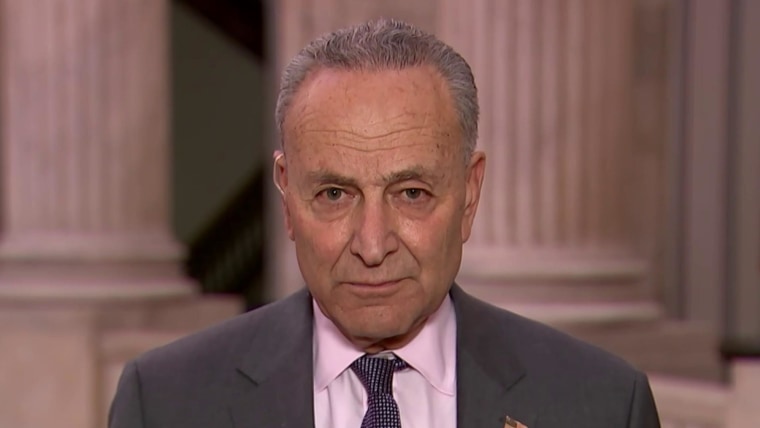Bailouts might not be popular, but there is no Plan B for a pandemic
As the economic fallout from the coronavirus pandemic continues to grow in the United States, conversations about government support for key industries such as airlines, banking and energy are accompanied by demands that any money come with conditions about stock buybacks, executive compensation, worker pay and more.
But these preconditions won’t matter if businesses collapse and unemployment skyrockets. In uncharted financial waters, lawmakers might have no other choice but to authorize government support of industries that are key elements of the real economy.
“This is too catastrophic,” said Charles Elson, director of the Weinberg Center for Corporate Governance at the University of Delaware. “This isn’t something they could’ve had cash for. This is too big. And if you allow them to go under, it would cripple the economy.”
“Not only is this unprecedented, it’s not predictable. I don’t think anyone even two months ago thought businesses would be shutting down,” said John Conlon, director of equity strategy at People’s United Advisors.
Jeff Strohl, director of research at the Center on Education and the Workforce at Georgetown University, said that government support through this crisis might be necessary, but he argued that businesses need to keep workers on the payroll for that money to have the desired effect.
Let our news meet your inbox. The news and stories that matters, delivered weekday mornings.
“There’s a connection between federal monies going to industries rather than people as a way to maintain employment, which would be a first step to fighting the demand side of the crisis,” he said. “Historically, we’ve seen businesses ask for a bailout and not necessarily do things that are the best for the overall economy.”
Preserving a climate in which consumer spending can continue after the virus ebbs should be a top priority, Strohl said, because consumer demand will only return if people have money to spend. “That’s 70 percent of economic activity in the United States,” he said.
“With any industry, whether it’s a bank, restaurant chain or retailer, you want to make sure that not only can the company survive this, but that their employee base can survive this,” Conlon said. “When this passes, you want to make sure you still have the underpinnings of your economy in place.”
Although progressive lawmakers such as Senator Elizabeth Warren, D-Mass., have called for companies that take government assistance to set a $15 an hour pay floor for workers, limit executive compensation and other conditions, companies buying back their own shares is proving to be the thorniest issue.
According to Bloomberg, the major U.S. airlines spent 96 percent of their free cash flow on buybacks over the past decade.
Conlon said there were economic conditions in which repurchasing shares can make the most sense, financially. “If the economy is not growing enough or fast enough that investing back in their respective businesses make sense, they can hold it, but in an environment of low interest rates, they’re not going to get much there.”
“Buybacks and dividends are normal ways of returning capital to investors. I prefer dividends,” Elson said. Repurchasing shares also has an outsized impact on compensation for the upper echelon of the corporate hierarchy, he said. “Buybacks increase the value of options held by executives. That’s another reason i’m not as enthusiastic about them.”
But tax law changes passed in the wake of the financial crisis conferred preferential treatment on buybacks versus dividends, making them more appealing to companies. Coupled with that has been a high degree of uncertainty around policy.
Supporters of the 2017 Tax Cuts and Jobs Act predicted that companies would take the windfall conferred by lower taxes and invest it to grow or improve facilities, technology and head counts, but a 2019 working paper from the International Monetary Fund found that the tax cuts failed to achieve these intended aims. “Investment has, so far, fallen short of predictions based on the postwar relation with tax cuts,” researchers concluded.
In a climate of tax, regulatory and — in particular — trade policy uncertainty, Conlon said that buybacks have the advantage of being a one-time event, as opposed to recurring dividend payments. “Once you commit to a dividend, it’s pretty hard to take it back because that does not send a very good signal to investors. You can put a buyback in place… and if things slow, you can stop buying back shares.”
Experts say, though, that drawing parallels to auto, banking and insurance bailouts during and after the Great Recession is a false equivalency to what the world is facing today. Ultimately, the magnitude of this crisis is beyond the scope of what any business model is built to withstand, Conlon said. “It’s not like they could take that cash or cash flow and put it aside for something like this.”
“This is an extraordinary circumstance no one could have ever anticipated,” Elson said. “In 2008, it was a human error that created the problem. This, regretfully, comes from beyond the human sphere.”

